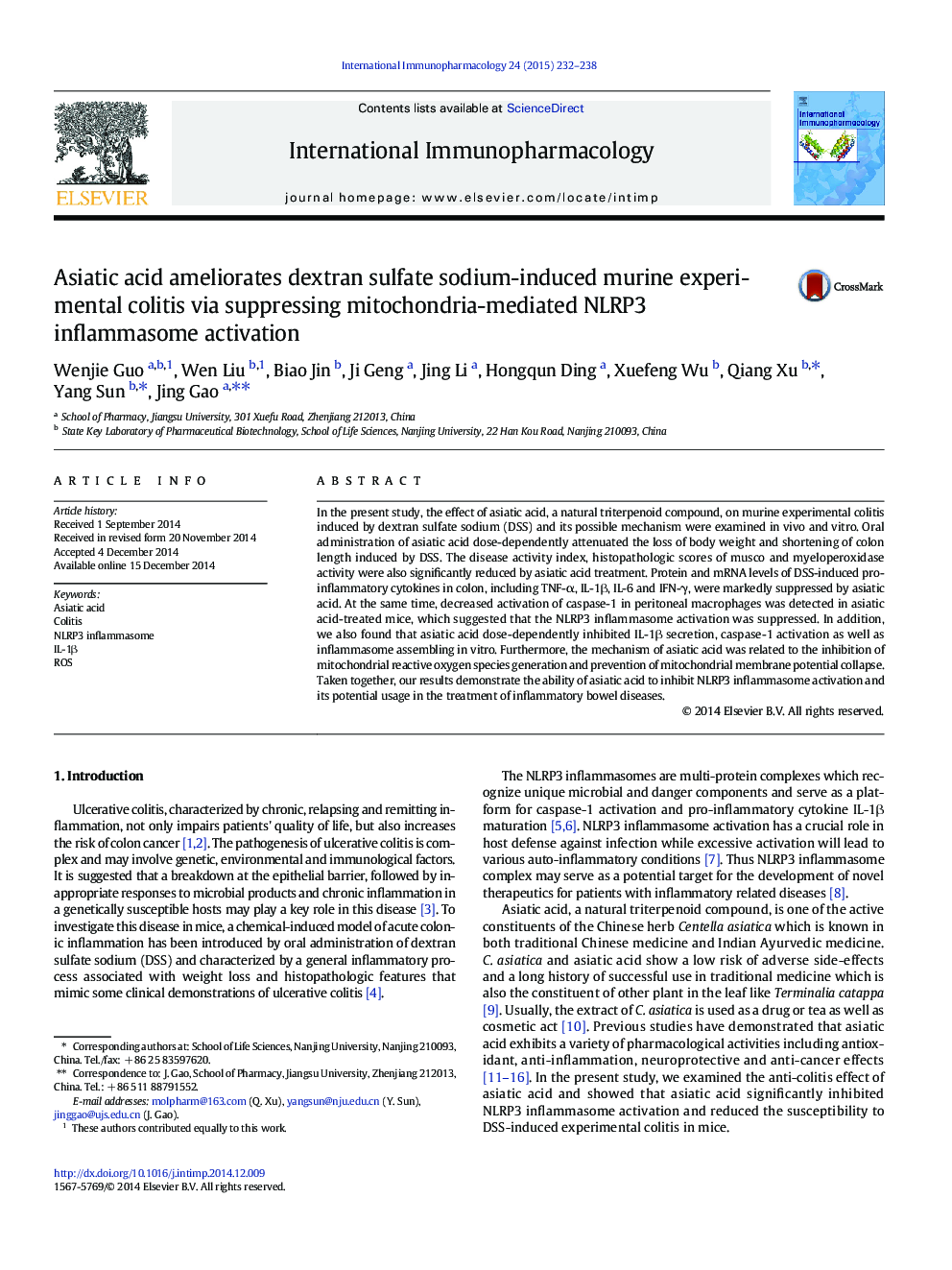| Article ID | Journal | Published Year | Pages | File Type |
|---|---|---|---|---|
| 5832425 | International Immunopharmacology | 2015 | 7 Pages |
â¢Asiatic acid ameliorated dextran sulfate sodium-induced murine experimental colitis.â¢Asiatic acid markedly suppressed the production of proinflammatory cytokines.â¢Asiatic acid decreased mitochondrial reactive oxygen species (ROS) generation.â¢Asiatic acid inhibited mitochondria-mediated NLRP3 inflammasome activation.
In the present study, the effect of asiatic acid, a natural triterpenoid compound, on murine experimental colitis induced by dextran sulfate sodium (DSS) and its possible mechanism were examined in vivo and vitro. Oral administration of asiatic acid dose-dependently attenuated the loss of body weight and shortening of colon length induced by DSS. The disease activity index, histopathologic scores of musco and myeloperoxidase activity were also significantly reduced by asiatic acid treatment. Protein and mRNA levels of DSS-induced pro-inflammatory cytokines in colon, including TNF-α, IL-1β, IL-6 and IFN-γ, were markedly suppressed by asiatic acid. At the same time, decreased activation of caspase-1 in peritoneal macrophages was detected in asiatic acid-treated mice, which suggested that the NLRP3 inflammasome activation was suppressed. In addition, we also found that asiatic acid dose-dependently inhibited IL-1β secretion, caspase-1 activation as well as inflammasome assembling in vitro. Furthermore, the mechanism of asiatic acid was related to the inhibition of mitochondrial reactive oxygen species generation and prevention of mitochondrial membrane potential collapse. Taken together, our results demonstrate the ability of asiatic acid to inhibit NLRP3 inflammasome activation and its potential usage in the treatment of inflammatory bowel diseases.
